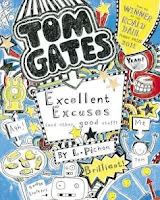More greatness from another Russian writer - Lolita, for all its perverted content, was a spectacular page turner. I didn't know much about the story at all, I just knew the iconic poster image from Stanley Kubrick's adaptation. I'd always dismissed it as a smutty road trip romance that wouldn't interest me, having no idea about its darker elements. I was slightly worried it would turn out to be one of those florally written pieces more concerned with style over substance, and whilst there are annoyingly cloying passages of almost parodic purple prose, the writing style is fully engaging. Humbert Humbert is an insufferably pretentious European academic who develops the disease of pederasty at an early age, following his inability to consummate things with his first 'nymphet.' This is the odious term Humbert gives to pre-pubescent girls he is sexually attracted to. After a failed first marriage, he moves to America where he meets Lolita, the daughter of his new landlady.
What follows is Humbert's crafty ingratiation into the household, by marrying landlady Charlotte Haze in order to get closer access to the daughter. When wifey discovers his perversion and dies in a 'freak accident', Humbert puts his predatory plans into action, taking Lolita on a year long road trip from one seedy roadside motel to the next. Robbing her of a childhood and stable education, he uses her for his perverted aims. Revolting Humbert waxes lyrical in his pseudointellectual and academic attempts to justify and legitimise his lust, inducing nausea in the reader. We already know at the start of the book that he is arrested and awaiting trial, we just need to know how he gets caught, and this is what keeps the pages turning. It is also worth noting that the book is very funny, with a distinct vein of black humour running through its pages. Many of the jokes are delivered through facetious puns or wordplay, as well as innuendo and a generous touch of the absurd. A gripping, though often distressing read with some extremely unpleasant details, as shocking today as it was in 1955.
Rating: 4/5



















